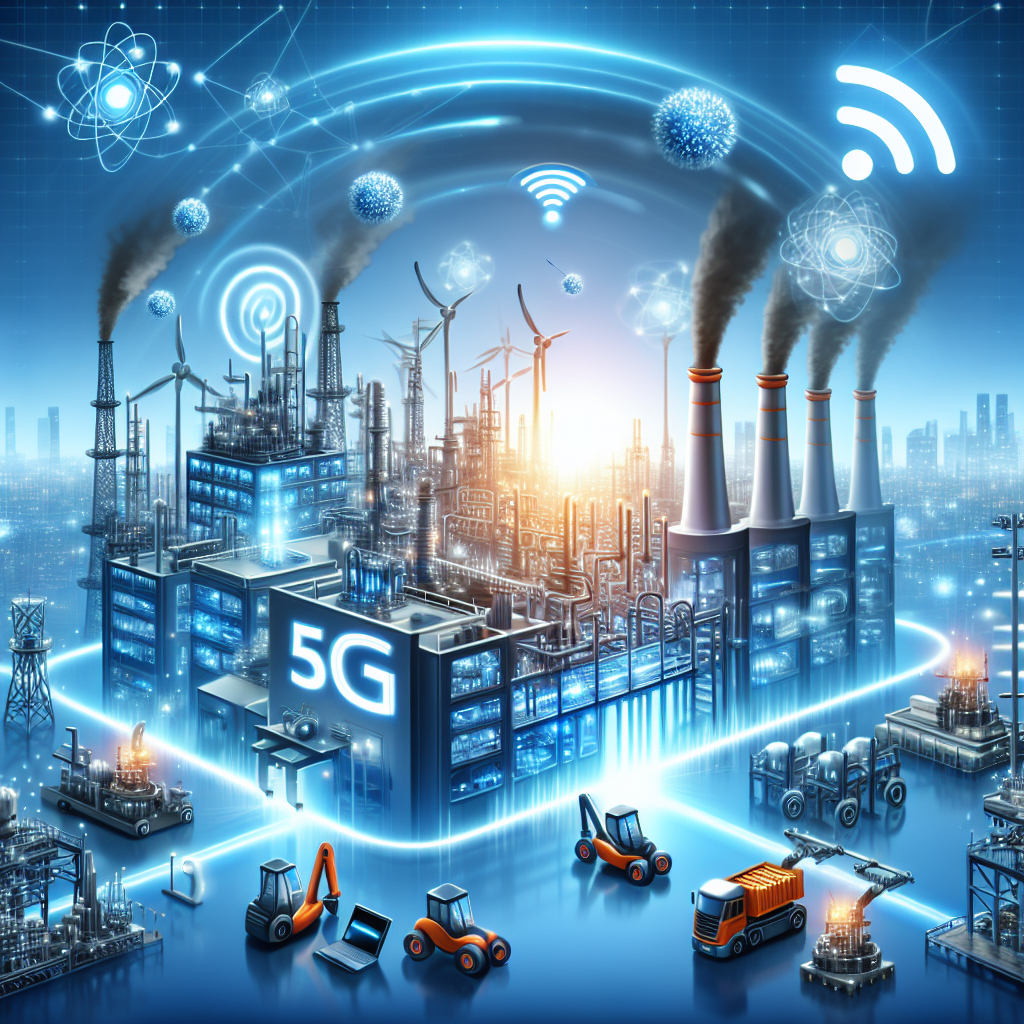-
Table of Contents
The Impact of 5G Technology on Industrial Production Processes in Indonesia

Introduction
Indonesia, as one of the fastest-growing economies in Southeast Asia, has been actively embracing technological advancements to boost its industrial sector. The introduction of 5G technology is set to revolutionize various aspects of the economy, including the production processes in industries. This article explores the potential impact of 5G technology on industrial production processes in Indonesia, highlighting the benefits and challenges that come with its implementation.
Understanding 5G Technology
Before delving into the impact of 5G on industrial production processes, it is essential to understand what 5G technology entails. 5G, or the fifth generation of wireless technology, promises faster data transfer speeds, lower latency, and increased network capacity compared to its predecessors. It operates on higher frequency bands, allowing for more significant data transmission and reduced congestion.
With its ultra-fast speeds and low latency, 5G technology opens up a world of possibilities for industries, enabling them to leverage advanced technologies such as the Internet of Things (IoT), artificial intelligence (AI), and automation to optimize their production processes.
Enhanced Connectivity and Communication
One of the most significant impacts of 5G technology on industrial production processes is enhanced connectivity and communication. With 5G networks, industries can establish reliable and high-speed connections between various devices and systems, enabling seamless data exchange and real-time monitoring.
For instance, in manufacturing plants, 5G technology can connect machines, sensors, and control systems, creating a networked environment where data can be collected, analyzed, and acted upon instantaneously. This level of connectivity allows for predictive maintenance, where machines can detect potential issues and notify operators before breakdowns occur, minimizing downtime and optimizing productivity.
Automation and Robotics
5G technology also paves the way for increased automation and robotics in industrial production processes. With its low latency and high reliability, 5G enables real-time control and coordination of robotic systems, making them more responsive and efficient.
In industries such as automotive manufacturing, 5G-powered robots can work alongside human workers, performing repetitive and physically demanding tasks with precision and speed. This not only improves productivity but also enhances worker safety by reducing their exposure to hazardous environments.
Internet of Things (IoT) Integration
The integration of 5G technology with the Internet of Things (IoT) is another significant impact on industrial production processes. The IoT refers to the network of interconnected devices that can communicate and share data with each other.
With 5G’s high-speed and low-latency capabilities, industries can deploy a vast number of IoT devices and sensors throughout their production facilities. These devices can collect real-time data on various parameters such as temperature, humidity, and machine performance, allowing for better monitoring and control of production processes.
For example, in agriculture, 5G-enabled IoT devices can monitor soil moisture levels, weather conditions, and crop health, enabling farmers to make data-driven decisions regarding irrigation, fertilization, and pest control. This level of precision and automation can significantly improve crop yields and reduce resource wastage.
Challenges and Considerations
While the potential benefits of 5G technology on industrial production processes are immense, there are several challenges and considerations that need to be addressed for successful implementation.
Firstly, the infrastructure required for 5G networks needs to be developed and deployed extensively. This includes the installation of new base stations, antennas, and fiber optic cables to support the increased data transfer speeds and network capacity. The cost of infrastructure development can be a significant barrier, especially for small and medium-sized enterprises (SMEs).
Secondly, there are concerns regarding data security and privacy. With the increased connectivity and data exchange enabled by 5G, industries need to ensure robust cybersecurity measures to protect sensitive information from unauthorized access and cyber threats.
Lastly, the transition to 5G technology requires upskilling and reskilling of the workforce. Industries need to invest in training programs to equip their employees with the necessary skills to operate and maintain the advanced technologies associated with 5G.
Conclusion
5G technology has the potential to revolutionize industrial production processes in Indonesia. Enhanced connectivity, automation, and IoT integration enabled by 5G can optimize productivity, improve efficiency, and drive economic growth. However, the successful implementation of 5G requires significant investments in infrastructure, cybersecurity, and workforce development. With careful planning and collaboration between the government, industries, and technology providers, Indonesia can harness the full potential of 5G technology and propel its industrial sector to new heights.
In conclusion, the impact of 5G technology on industrial production processes in Indonesia is poised to be transformative. The benefits of enhanced connectivity, automation, and IoT integration can revolutionize various industries, from manufacturing to agriculture. However, addressing the challenges of infrastructure development, data security, and workforce upskilling is crucial for successful implementation. By embracing 5G technology and overcoming these challenges, Indonesia can position itself as a leader in the digital economy and drive sustainable growth in the industrial sector.
